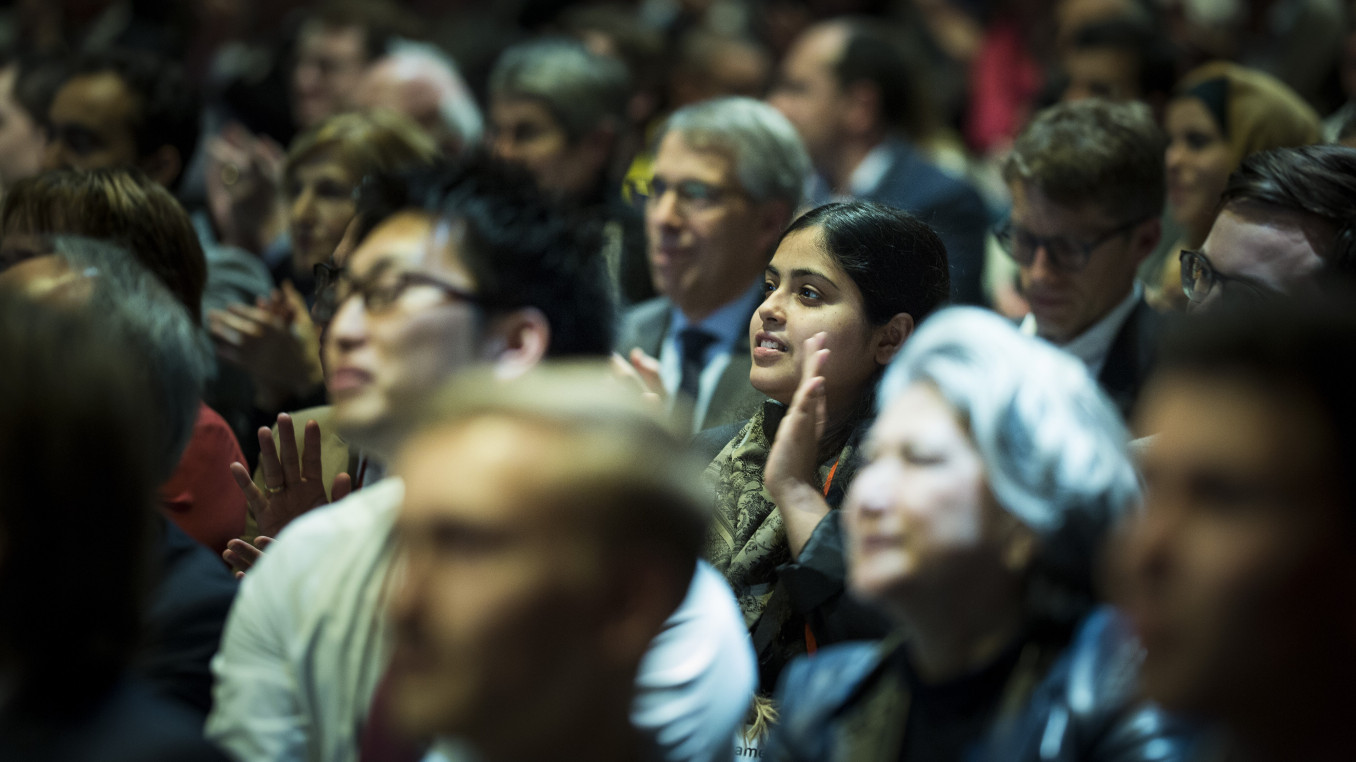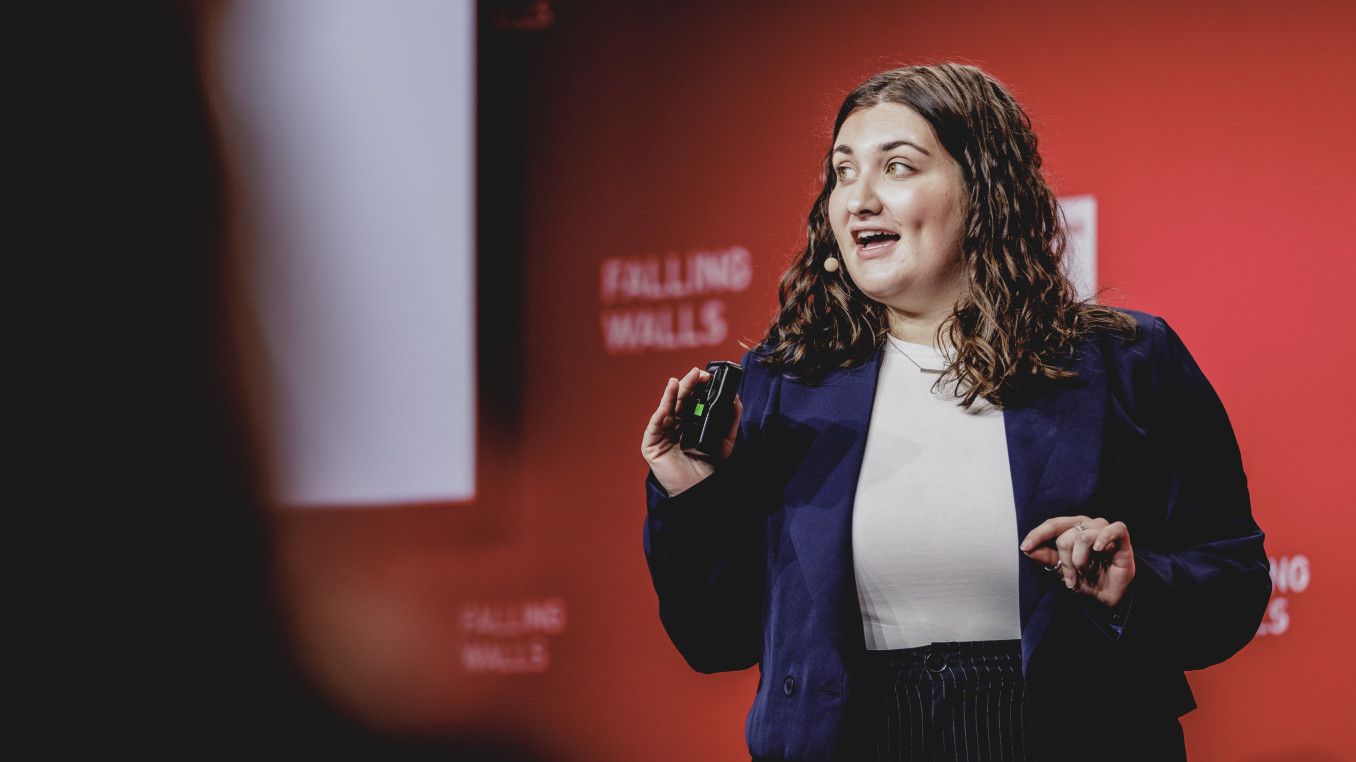Breaking the Wall of Exclusion from Child Vaccination
Breaking the Wall of Exclusion from Child Vaccination
Global Call 2025 Finalist Interview: Social Sciences & Humanities
Mira Johri is a Professor at the University of Montreal. Her research advances global health equity, especially for children, by addressing systemic drivers of exclusion and improving access to essential services like vaccination. Fieldwork in Guatemala and India has been the cornerstone of her learning. She advises WHO, UNICEF and Gavi, and co-founded Raah Foundation to promote community-led innovation in rural India. Her work informs global policy for vaccine equity and has earned national and international recognition.
Which wall does your research or project break?
Despite unprecedented advances in vaccine development and delivery, nearly 20 million children worldwide still lack access to life-saving immunisation. These children are not missed at random—they are consistently excluded by systems that fail to reach the most marginalised. My research confronts the complex, layered barriers that prevent children from accessing vaccines and the broader health system.
At the heart of this exclusion are structural determinants—poverty, gender inequity, discrimination and weak governance—that intersect to produce persistent gaps in immunisation coverage. These barriers are often invisible in aggregate data but acutely experienced by families on the margins: those living in remote rural areas, informal settlements, conflict zones or facing systemic discrimination due to caste, ethnicity or migration status.
A core insight of this project is that conventional, top-down approaches to immunisation often fail to engage with these lived realities. My work seeks to “break the wall” by reimagining approaches to strengthen immunisation delivery. I focus on three key barriers.
The first is the lack of evidence for action. To address this, I use rigorous quantitative methods to illuminate the social and structural determinants of exclusion from childhood vaccination. The second is the absence of knowledge about which kinds of interventions can meaningfully address the complex root causes of exclusion. By combining quantitative analysis with participatory, community-engaged research our team in India is developing and testing context-sensitive solutions that strengthen immunisation while responding to tangible community needs. The third barrier is the disconnect between global policymaking and lived experience. By working in partnership with multilateral institutions such as Gavi, our findings have helped shape the global policy dialogue, influencing Gavi and partners to champion more holistic approaches for reaching the most vulnerable.
Ultimately, true immunisation equity means recognising and addressing the structural exclusions that keep some children beyond the reach of health systems. My research contributes to building the evidence and alliances needed to make those children visible, centre their dignity and support health systems that work for all.
What is the main goal of your research or project?
Traditionally, vaccination strategies have been designed from a biomedical perspective, focused on reducing death and disability caused by specific infectious pathogens. While these objectives remain essential, my research seeks to expand the purpose and potential of vaccination as a platform for equity and transformation.
The main goal of my work is to leverage immunisation not only to improve child survival but to advance the broader well-being and flourishing of children, families and communities—particularly those historically excluded from access to health and social services. My research aligns with the Sustainable Development Goal (SDG) vision of transformative development: a world in which all children can survive and thrive, and where no one is left behind.
This means addressing the structural drivers of exclusion—poverty, discrimination, gender inequity, weak governance—and reimagining immunisation as part of a broader public infrastructure that can promote dignity, participation and justice. It requires evidence that goes beyond describing disparities to identifying root causes and co-creating practical solutions with those most affected.
The immediate aim of my research is to develop a scalable, high-impact intervention model for marginalised rural communities in India that strengthens vaccination delivery and uptake through a logic of co-benefits—improving health while simultaneously addressing community-identified needs and contributing to broader social goals.
Ultimately, the goal is to help shift the power structures that determine who benefit from health systems and who remains invisible. By using vaccination as a starting point this research aims to open space for a more just and inclusive model of health delivery—one that treats immunisation not only as a clinical intervention but as a right and a lever for social transformation.
What advice would you give to young scientists or students interested in pursuing a career in research, or to your younger self starting in science?
I entered research inspired by the belief that science and evidence could help solve the most urgent problems facing humanity. I still hold that conviction. But over time I have learned that science alone is not enough—it must be values-led to deliver on this promise.
For those entering science today I offer this: stay grounded in the values and aspirations that brought you to this work. Honesty, integrity, methodological rigour and a commitment to justice are not optional—they are the foundation. Science is not immune to the pressures of careerism, competition and shifting political agendas. But in the end careers rise and fall. What endures are personal relationships and the impact of work rooted in truth and relevance.
In my field—global health and development—systemic changes to the multilateral aid system are shifting the foundations of our work. Sudden withdrawal of funding and disinvestment imperil the progress made by the global community towards the Sustainable Development Goals and place the poorest and most marginalised at risk. The global solidarity required to deliver essential vaccinations for children is under threat. As traditional models weaken, there is an urgent need to reimagine how research is conceived and conducted. The vision advanced by the International Science Council is, in my view, essential: science must be co-produced with local actors, oriented toward the public good and carried out with humility, solidarity and deep respect.
The best learning in my career has come not from textbooks or classes, but from working alongside communities in Guatemala and India. The people closest to the problems often hold the clearest insights into solutions. As a young researcher, I didn’t fully understand this. If I could speak to my younger self I would say: listen more, worry less and build relationships with care.
Finally, understand that, as a scientist, meaning comes not from publication counts or prestige but from being of service—to your students, your colleagues, your community and to those whose lives you hope to improve. Keep returning to your purpose. Let that be your guide.
What inspired you to be in the profession you are today?
I entered global health research believing science could change lives. Fieldwork taught me it must also centre dignity, justice and partnership. Real impact begins when research listens, includes and works with communities.
What impact does your research or project have on society?
My research helps make invisible children visible—those excluded from vaccination and health systems. By centring dignity, data and community voice, we’re working toward more just, inclusive systems that leave no one behind.
What is one surprising fact about your research or project that people might not know?
Nothing works as planned, but everything works. Behind every field project is the jugaad of our incredible field staff—their kindness, creativity, quick thinking and ability to make things work no matter what. It’s this can-do spirit that turns challenges into wins.
What’s the most exciting moment you've experienced over the course of your research or project?
One of the most exciting moments in our project was training children as community mobilisers for vaccination. Suddenly, they were everywhere buzzing with energy and enthusiasm, rallying their whole community. It was incredible to see how much impact they could make!


